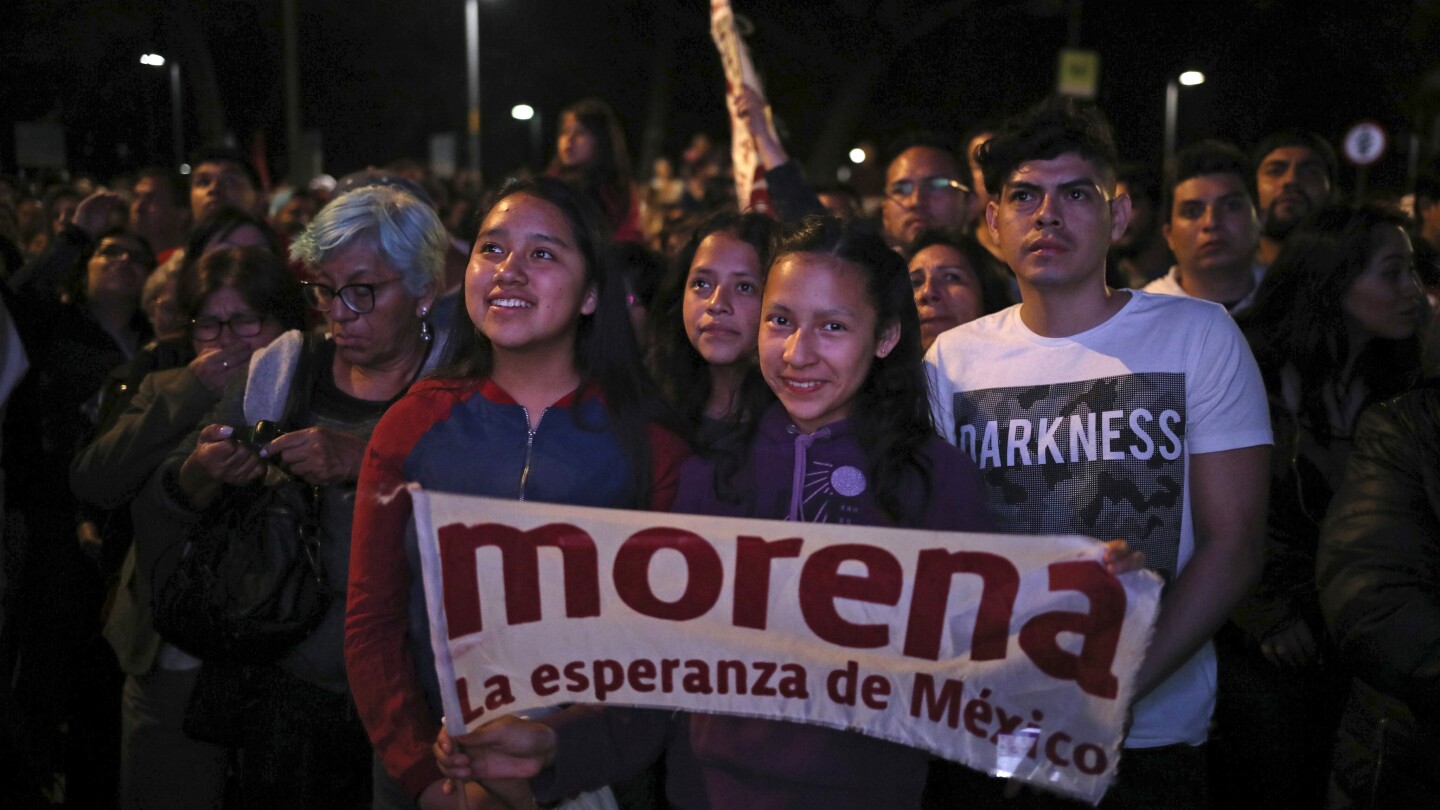MEXICO CITY (AP) — Mexico’s immensely powerful ruling party may face its biggest test yet Friday, as it announces its candidates for the 2024 gubernatorial elections.
The challenge isn’t coming from flagging opposition parties. Rather, the party of President Andrés Manuel López Obrador has to prove it can really hold together and prevent the desertion of candidates who weren’t picked — or whether, with the end of term for its charismatic founder, the ideologically diverse party could start falling apart.
Since López Obrador founded his Morena party in 2014, it has largely served to promote him, with little ideological consistency and a leading elite made up of disparate elements, in many cases recruited from other parties or resuscitated despite past scandals. But López Obrador, who can’t run for re-election, leaves office in 10 months.
Morena has already announced its nominee for the presidential race, former Mexico City mayor Claudia Sheinbaum, who is seen as a faithful — almost robotic — follower of the president. But the other frontrunner in the primary race, former foreign relations secretary Marcelo Ebrard, still hasn’t indicated whether he might bolt the party.
The other unknown is former Mexico City police chief Omar García Harfuch, who gained famed as tough and effective cop after he survived a 2020 ambush attack by the Jalisco drug cartel on a street in the capital. The brazen attack left him with three bullet wounds; his two bodyguards and a bystander were killed.
García Harfuch is competing for the Morena party’s nomination for the mayoralty of Mexico City. Because the capital is so large — at over 9 million inhabitants — the post is considered a governorship, and what’s more, has been a historic launching pad for the presidency.
But the nomination may go to Clara Brugada, the borough president of a rough stretch of low-income neighborhoods on the city’s east side. Brugada is preferred by the leftist wing of Morena because she built “utopias” — sports and cultural complexes — in neighborhoods where past administrations had focused on the bare-bones issues of drainage, policing and chaotic transportation networks.
It is unclear whether García Harfuch might walk away from Morena. He would be an attractive candidate for any of the weak, disorganized opposition parties, which have been pushed into the background by López Obrador’s charisma and hand-out policies like youth scholarships, cash food allowances for the elderly and raises to the minimum wage.
So far, one primary candidate who failed to secure her party’s nomination has already left Morena. Sen. Lucía Meza announced this week she will run on the opposition ticket for the governorship of Morelos state, south of Mexico City.
Her departure illustrates the problem Morena faces in uniting its disparate forces: Meza claims current governor Cuauhtémoc Blanco — a former soccer star and personal ally of López Obrador who was recruited from another party — sabotaged her candidacy. Blanco has been investigated for ties to criminal gangs.
“Our state doesn’t matter to Morena, they don’t care if we are governed by a criminal,” Meza wrote in her resignation letter Wednesday.
The issue of what Morena is ideologically, and who is really a “true blue” party member, has up to now largely revolved around who most faithfully obeyed López Obrador, who has long been depicted as a leftist but who is in fact more of a nationalist and populist.
With its ideology muddled, hard-core Morena supporters have fallen back on purity tests: they prefer Brugada because she has been a left activist since the dark days of the 1980s, and dislike García Harfuch because his grandfather was an allegedly repressive general and his father was a shady police chief under past governments.
In the face of such confusion, Harfuch says the party has to open up.
“The party doesn’t just belong to the founders,” he said in a recent interview.
The issue isn’t theoretical: the old ruling Institutional Revolutionary Party, the PRI, parlayed a similar mix of nationalism and hand-out programs into an uninterrupted 71-year hold on Mexico’s presidency between 1929 and 2000, but only because it evolved a series of rules on internal competition that came to be known as “institutionality.”
Outgoing presidents and governors were allowed to hand-pick their successors, but had to retire from politics entirely after their term ended. Losing primary candidates were given consolation prizes in the form of other posts, and were expected to shut up and accept them.
That system lasted decades and didn’t break broke down until the financial and political crisis of 1994, when ruling-party factions began physically attacking each other.
It remains to be seen whether Morena can achieve that kind of balance. But Morena party leader Mario Delgado appeared to take a step in that direction this week when he announced that any losing primary candidate would be automatically offered a seat in the Senate.

